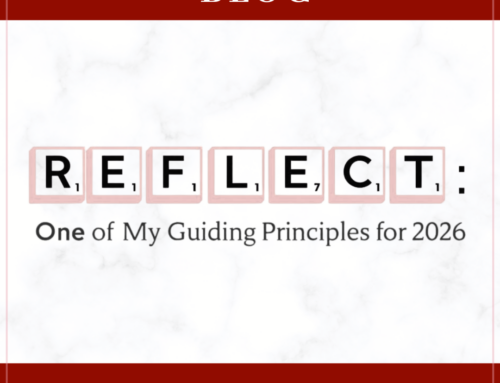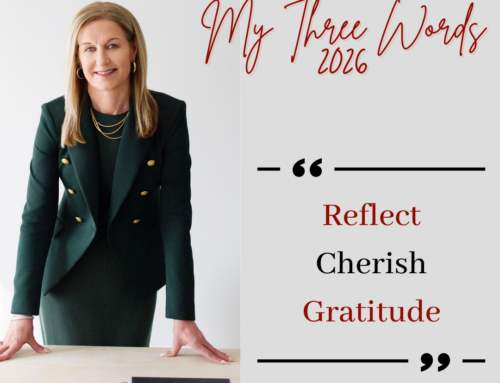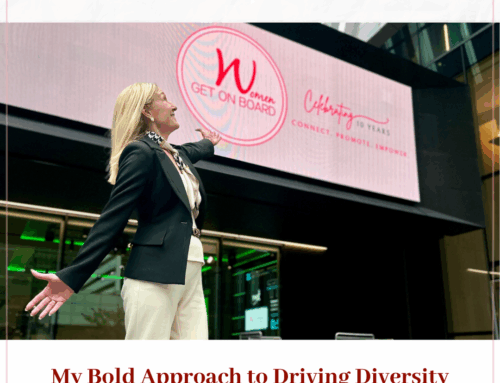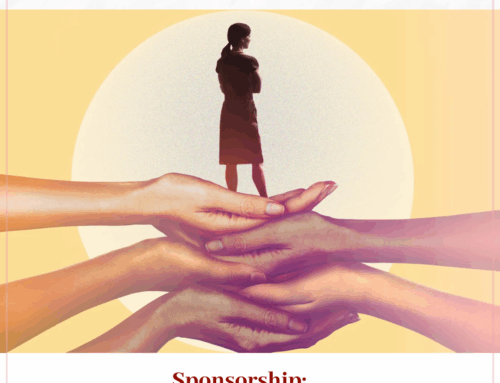One of my goals for 2024 is to become a more effective listener. As I continue to become a stronger ally, I’ve realized that listening is a vital leadership skill and a critical tool for allyship.
That insight was crystalized for me at our WGOB Summit in 2023 when I spoke with a woman who heads up the Indigenous affairs department at a university in Ontario after one of the afternoon sessions. During the conversation, she mentioned the land acknowledgment we read at the start of the day. Her suggestion? We should consider adding a call to action to our future land acknowledgements to demonstrate our commitment to reconciliation.
Rather than thanking her for the suggestion and moving on, I asked her to tell me more. She kindly outlined the purpose and significance of land acknowledgements and explained how incorporating a call to action from the Truth and Reconciliation Commission’s 94 recommendations could make our acknowledgement more meaningful.
It was a powerful lesson in the importance of listening. That moment showed me that practicing effective listening can be critical for building more inclusive and compassionate communities, fostering change and advancing the rights and well-being of others.
By becoming a better listener, I am stepping towards better supporting and advocating for marginalized people in my community.
The three key elements of effective listening
During her Women Get On Board virtual session last fall on allyship, board executive and DEI advocate Gavriella Shuster shared a definition of effective listening that deeply resonated with me. She explained to our audience that great listeners have three essential qualities they are being open-minded, staying curious and learning from others.
We can use Gavriella’s definition to understand and incorporate the key elements of effective listening in our own practices.
Open-mindedness is critical for becoming a great listener. To listen meaningfully, you must be willing to set aside preconceived notions and sincerely consider the perspective of others. It’s essential to approach every conversation with a willingness to learn from the experiences and insights of those around you. By approaching every interaction with an open mind you can foster more impactful interactions.
Curiosity also plays a role in effective listening. Asking thoughtful questions and seeking to understand the experiences of others demonstrates a genuine interest in their well-being. By staying curious, you can gain valuable insights and a deeper understanding of the issues that individuals or communities may face.
The final element is to learn from others. It’s a continuous process that involves actively seeking out diverse perspectives. Engaging with various voices and ideas can broaden your understanding of different lived experiences and help you become more informed and empathetic. It can also challenge your assumptions and biases, leading to personal growth and a more inclusive mindset.
I find it helpful to remember that effective listening is a skill that takes practice and dedication. It may involve stepping out of your comfort zone, defying your preconceived notions, and seeking to understand different experiences.
Becoming a more effective listener
As I strive to become a better listener, I’m focusing on practical actions to enhance my skills. These are a few essential tips I’ve learned in my journey.
1. Practice active listening
Engage in conversations with genuine interest and focus on understanding the speaker’s perspective.
As a board chair, I focus on what others are saying rather than simply waiting for my turn to speak. I practice the WAIT concept (Why Am I Talking?) to stay on track. When you consistently consider why you are talking, you avoid speaking unnecessarily and create space for more meaningful and productive conversations.
Another key active listening technique is to repeat back what someone has said to make sure you heard them. Try a phrase something along the lines of, “So if I understand what you’re saying . . .”
2. Be open to feedback
Allow others to share their thoughts and experiences and be willing to accept feedback with an open mind. At Women Get On Board, we always ask for feedback following our events, programs, and annual WGOB Summit. This practice allows us to continuously improve our work to connect, promote and empower more women to corporate boards, but we also notice that when we listen to our members and attendees, they feel more engaged in our community and the mission we share.
3. Seek out diverse perspectives
Actively engage with individuals from diverse backgrounds and communities to broaden your understanding of other experiences.
I’m grateful that the Indigenous leader who spoke to me at the WGOB Summit was kind enough to offer her perspective and insights. Inspired by our conversation, I embarked on further research, exploring what we could do as a social purpose company to support Indigenous Peoples in Canada.
In the end, I selected these three calls to action on which to focus:
• To learn more about Indigenous Peoples and issues on my own and with my team at Women Get On Board
• To continue to look forward to positive change in the situation of Indigenous Peoples
• To elevate Indigenous women leaders through our WGOB Mentorship Program
We are now taking concrete steps to work toward each call to action as part of our commitment to allyship.
4. Challenge your assumptions
Be aware of your biases and be open to challenging your perspectives. Openness to rethinking your views, especially when confronted with new information, is a key quality of a great leader.
5. Reflect on your conversations
Listening doesn’t end when the conversation is over. Following a discussion, take time to reflect on what you heard and consider the insights gained from others.
6. Practice empathy
As you take in what you’ve learned by listening, practice empathy. When you put yourself in others’ shoes and seek to understand their experiences and emotions, you will build a better understanding of their perspective.
7. Take action
Use your insights to advocate for change and support those in need within your community.
I have spent decades of my career listening to and observing women in business to understand the barriers they face. What I have learned is that female founders don’t need more mentoring or coaching. Instead, they need access to funders that will invest in their ventures. Without access to the same funding opportunities as men, women lose their ambition to go big, go bold and scale up their ventures.
I recognized that need with my co-founders Sherry Shannon-Vanstone and Lara Zink and we launched Women Funding Women Inc. Together with an advisory council of women leaders and corporate partners, we are working to bridge the funding gap for women founders.
My journey toward becoming a more effective listener is just beginning. But, I’m dedicated to continuing to incorporate these tips into my daily life, knowing that each practice will help me develop my skills and become an even more valued ally.
In my recent experiences, I have already seen how effective listening leads to stronger connections, increased support for those in need, and a more inclusive environment where everyone’s voice is valued. For allies, listening is a crucial skill that can help support meaningful change and progress in advancing the rights and well-being of others in our communities.





Leave A Comment